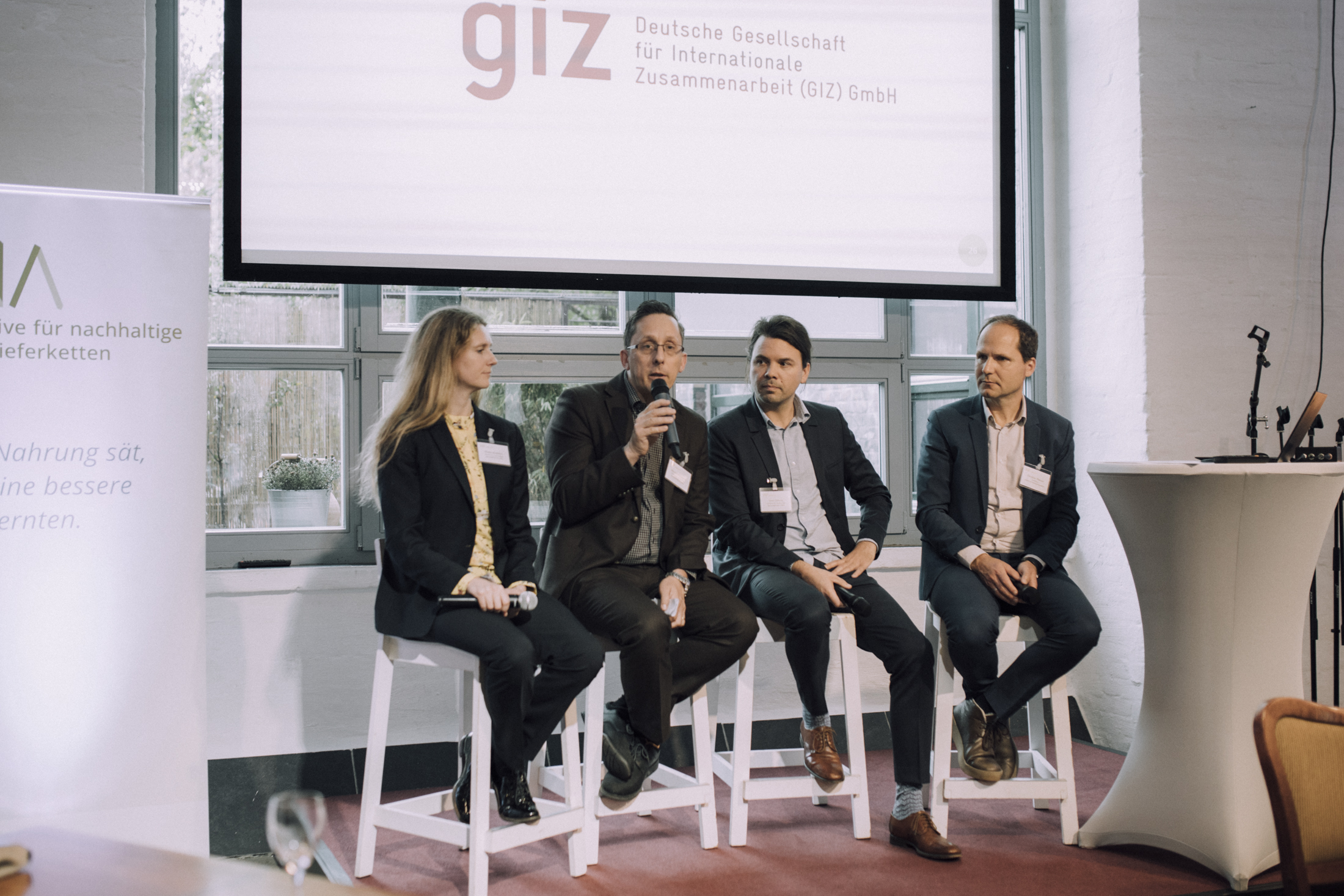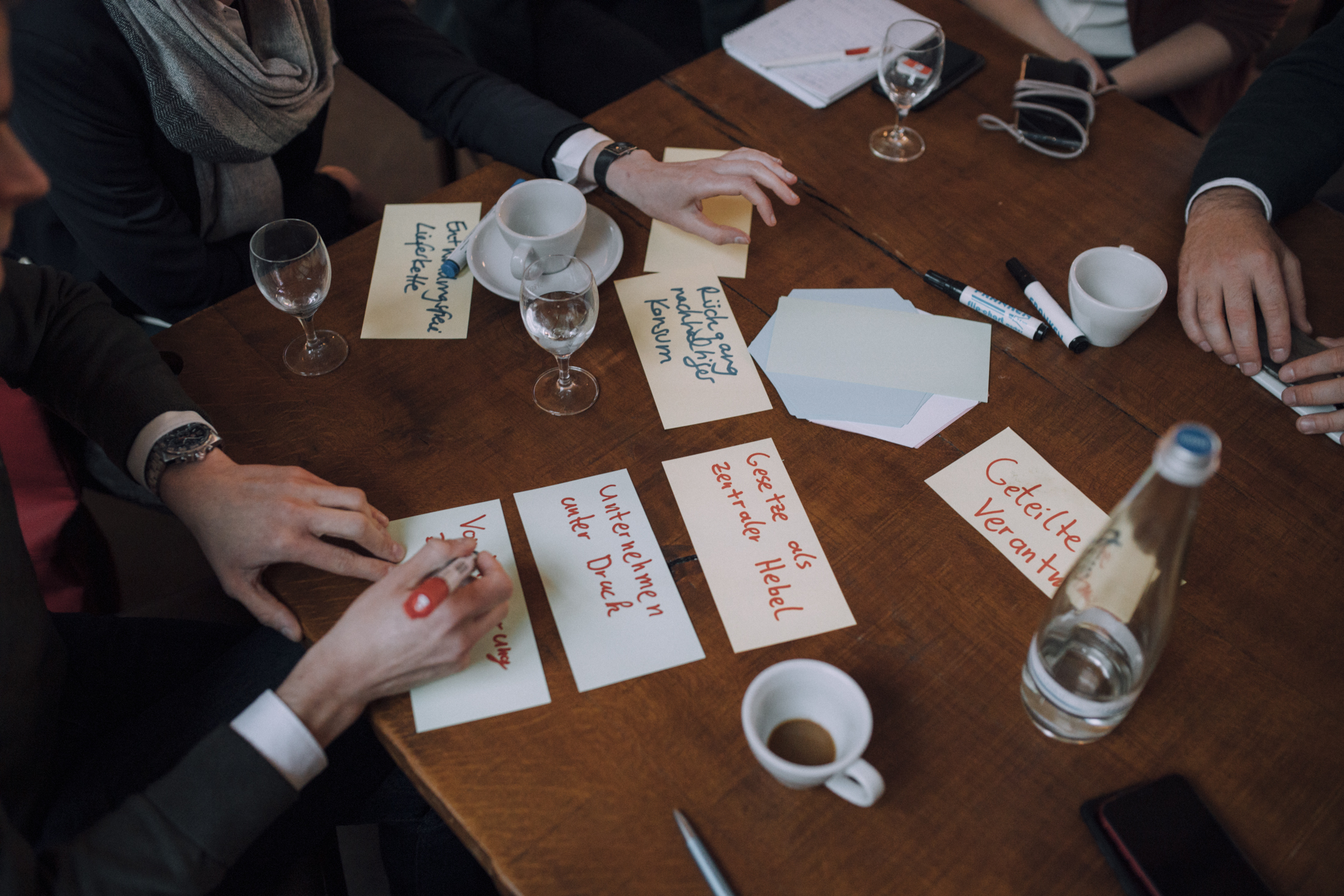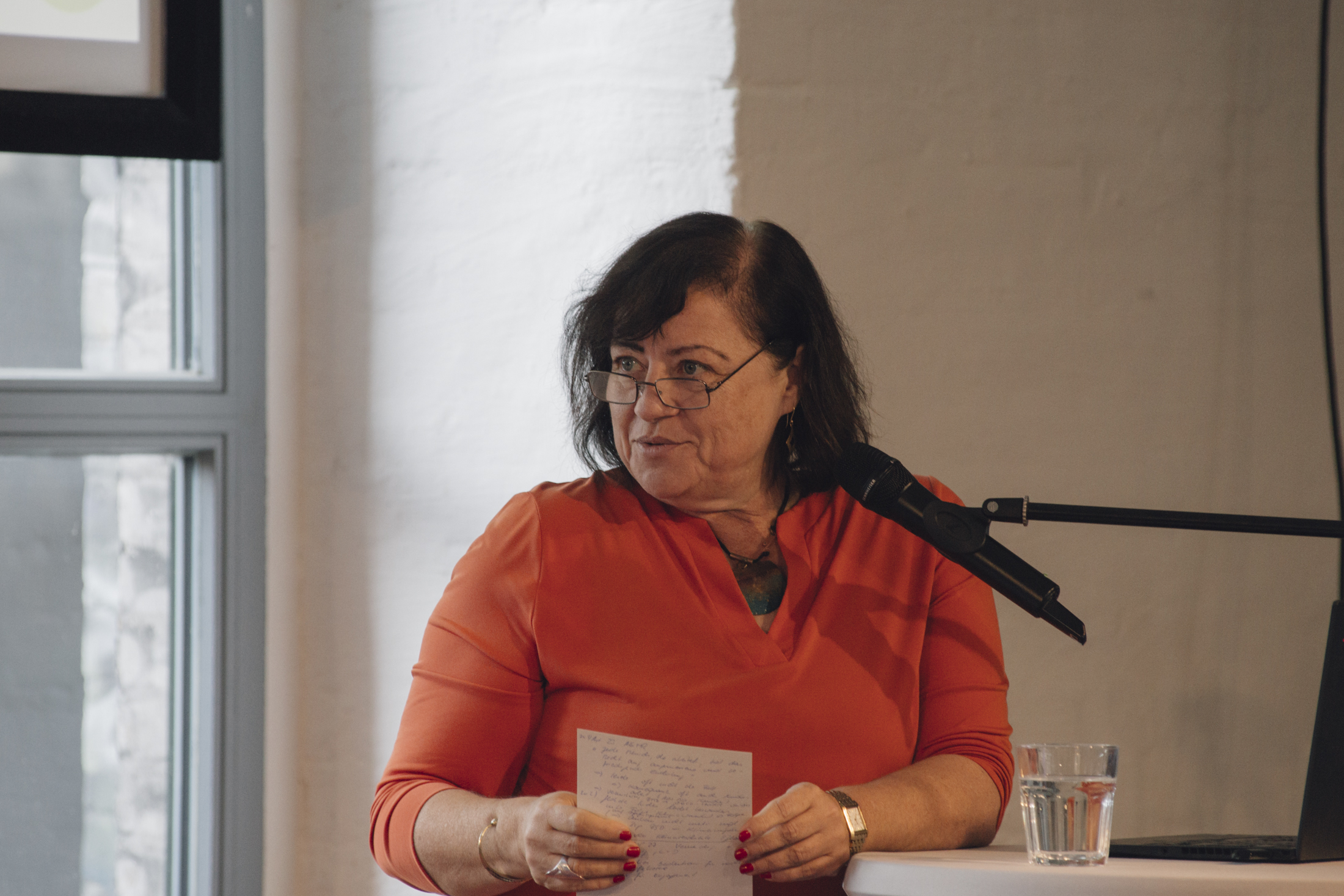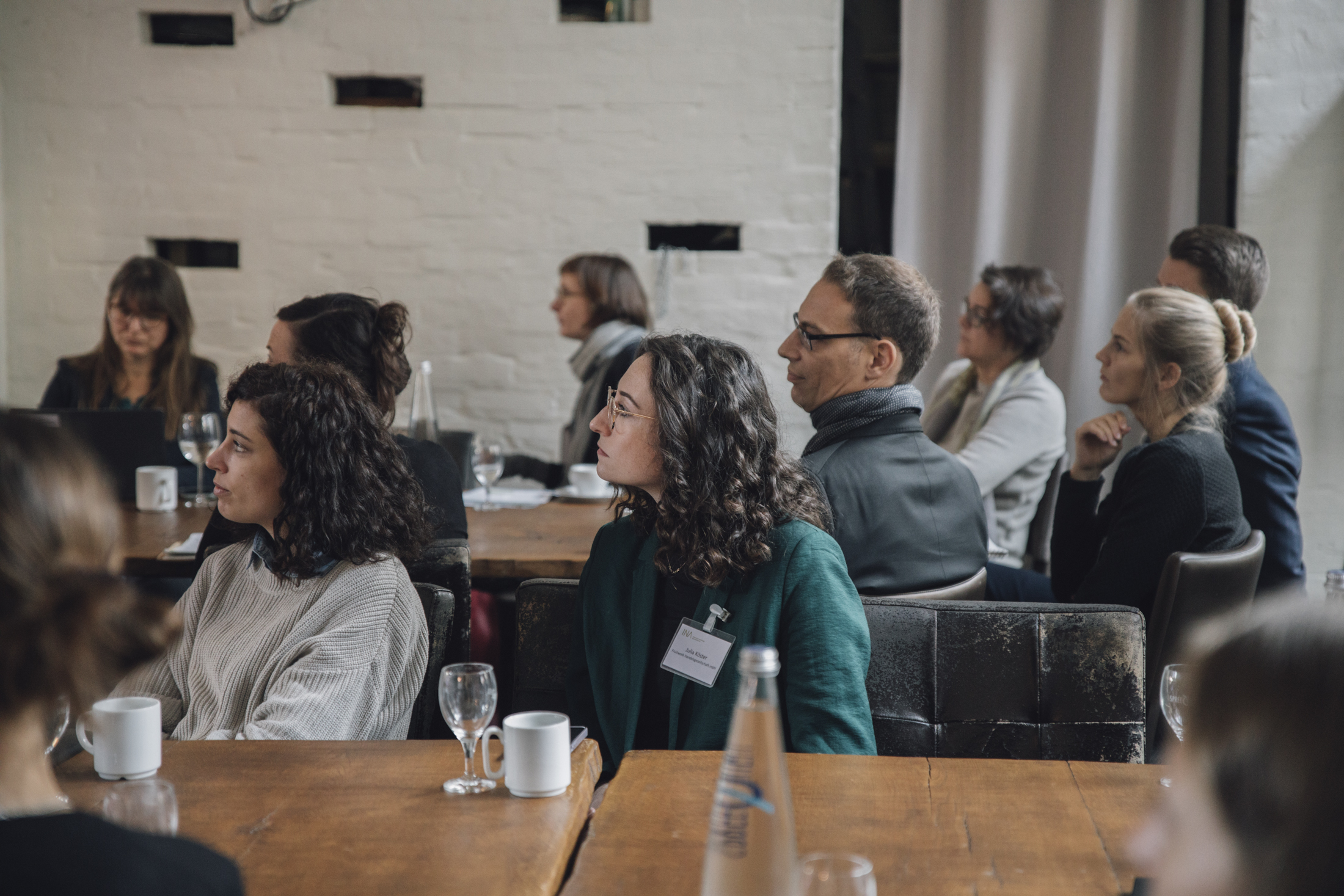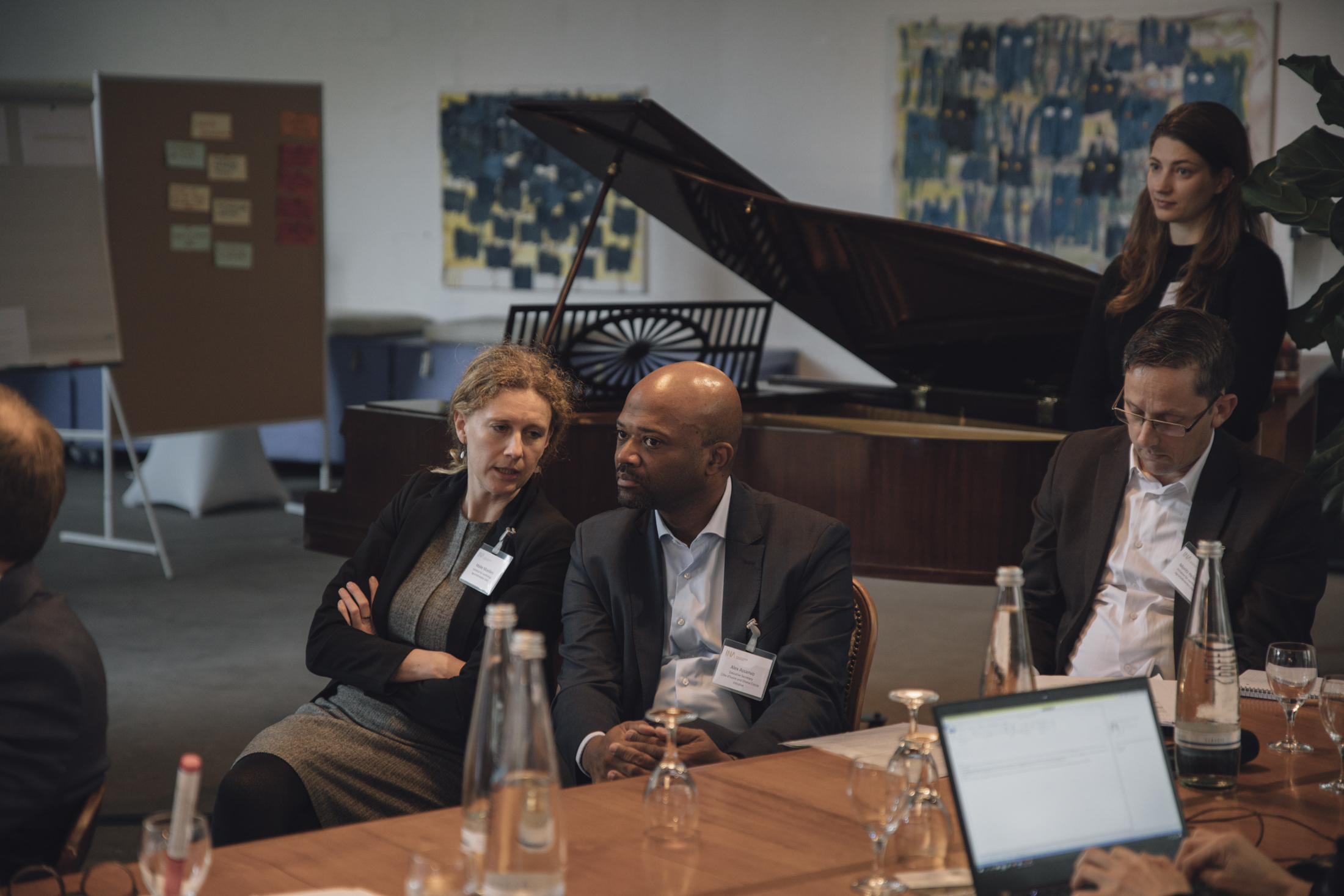- Announcement
INA-Stakeholder Meeting 2022

An article by Leonard Schäfer
For the first time in three years, the Initiative for Sustainable Agricultural Supply Chains (INA) met again with its partners in presence on 7 & 8 November 2022 in Berlin. Sixty stakeholders from the private sector, civil society and politics came together under the motto "Agricultural Supply Chains in Times of Crisis" and listened to exciting presentations by Alex Assanvo (Executive Secretary of the Initiative Cacao Côte d'Ivoire-Ghana) and Dr Bärbel Kofler, Parliamentary State Secretary at the Federal Ministry for Economic Cooperation and Development.
The initiative for sustainable agricultural supply chains wants to establish networks - that was the original idea - processes and problems within the supply chains should be tackled across commodities and considered under the goal of sustainability. We were able to maintain this platform during the Corona pandemic by means of virtual formats such as the INA Lunchbreak, but no virtual meeting can replace face-to-face exchange. So Maike Möllers, Moritz Heldmann and Jonathan Ziebula (INA management) were happy to welcome the 60 participants to the colourful mix of tables without having to look at a screen with lots of little tiles. They began by presenting the core themes of INA, which has been piloting projects over the past four years, but also offers funds, advice and expertise on commodities and issues such as deforestation, living income, gender justice and digitalisation.
Companies in times of crisis
This was followed by keynote speeches by the companies present, which reflected on how they deal with multiple crises worldwide. In addition to the difficult energy supply, the doubling of prices for raw materials or working materials such as fertiliser was highlighted. Climate change as a long-term crisis is leaving its mark everywhere; in the coffee sector, for example, there is talk that it will reduce the area under coffee cultivation by around 60%.
“It is more profitable for the future to think more sustainably now.”
But already in this thematic block it echoed that these crises can only have one way out. The medium-sized company Norevo reported that it had already positioned itself more sustainably several years ago and thus benefited from long-term business relationships that can also survive times of crisis. At the same time, the energy crisis had even contributed to the fact that the already planned conversion to 100% green electricity could now be completed.
Afterwards, it became clear why it is so important for INA to bring together a wide range of actors under one roof: Welthungerhilfe drew attention to the 828 million people who are currently affected by hunger and thus turned the spotlight from the global North to the global South. Here, the crises affect the population in a much more existential way, forcing mothers to feed their children fermented goat's milk containing alcohol due to a lack of food, for example.
"Why does it always affect the same people?"
- Lisa Heinemann, Welthungerhilfe
Part of the INA concept is to offer the participants a varied programme that also provided enough time for productive exchange. In addition to small workshop-like group work, there was a project parcours where projects and funds were presented at various stands that can be helpful for companies and producers alike. At around 6.30 pm, the first eventful day came to an end and the oldest improvisation theatre in Berlin, Theater Sport Berlin, with the help of the audience, delivered a one hundred percent improvised hour of extensive laughter with reference to agricultural supply chains.
The beginning of every supply chain
On the second day, Angelique’s Finest coffee, which has become traceable through INATrace and the Kaffee Kooperative, awakened the participants' spirits. First, there was a block of topics on the upcoming EU due diligence law, with up-to-date information on the planned directives and questions on this to the speakers. The strong resistance from business lobby groups, which is currently complicating the legislative process, emerged as a particular problem area.
The Helpdesk on Business & Human Rights will offer German companies a contact point for the German Supply Chain Due Diligence Act, which will come into force in January 2023, and already answered questions from the audience at this event. Johannes Luderich from INA concluded this block of topics on legislative projects by presenting the Due Diligence Fund. This fund promotes promising approaches to the fulfilment of corporate due diligence obligations in companies. There will be a new Call for Proposals from the end of November 2022, more information will be available on our website soon.
This was followed by the speech of Dr Bärbel Kofler, Parliamentary State Secretary at the Federal Ministry for Economic Cooperation and Development. She focused on the producer countries and the immense burden that has to be borne locally due to the global crises. Supply chains need to be rethought by focusing on the producers, she stated. And while Kofler spoke out in favour of living wages and incomes, the next speaker was already listening intently: Alex Assanvo, Executive Director of the Côte d'Ivoire and Ghana Cocoa Initiative. He brought the perspective of a partner country, which Ms Kofler had mentioned, to the meeting.
“Every country in Europe has a minimum wage, why isn't it paid in the producing countries?”
Alex Assanvo addressed the companies present. It was important for him to note that he did not want to accuse anyone, but something had to change now. A small farmer who does not earn enough to survive goes into the forest and destroys it to feed his family, he explained by way of example, and then asked the group "What should the government do now? Put soldiers all over the forests? And then? Then the farmer goes to jail? So what!" He now wants to cooperate and work together so that everyone in the supply chain would be better off. But that is only possible, he says, if the perspective, concerns and needs of partner countries are included in decision-making processes.
Based on the political and legal framework conditions, the participants worked in groups to identify impulses on how supply chains can be shaped in the future. At the same time, they worked out what support they still needed on this path. On the one hand, more awareness-raising work was called for in the companies so that sustainability becomes a more integral part of the corporate strategy. On the other hand, they asked for the development of digital tools to make it easier to comply with the law. You can download the detailed results in our protocoll at the end of this article.
The event was concluded with a presentation by René Schmidtpeter, an economist and professor of business administration who conducts research in the field of sustainability management. He sees the dichotomy of sustainability and profit as outdated. This is merely a fixed idea, he said, which he resolved with an example. He asked the question why a car has a brake and immediately answered the hesitant audience himself: "To drive even faster!" A car without brakes could not go faster than a few kilometres an hour without endangering the occupants. Similarly, sustainability is often seen as a brake, although it is actually a driver for innovation. A sustainable company is less risky and thus a profitable and safe investment, but there is still a lack of supply on the market.
It remains to be said: The big questions of the future can only be answered together by making producer countries and consumer countries real partners. The meeting once again emphasised the urgency of making sustainability a condition of economic activity. This is the only way to tackle the crises of the future. It is time to learn from the experiences of the current crises.
The INA thanks all actors for this productive and proactive meeting. We look forward to future events.

